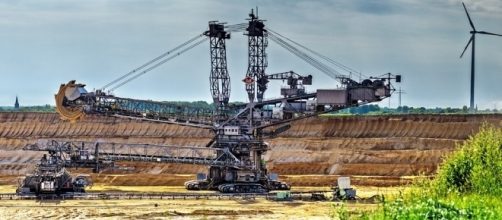You should judge my opinion on this topic by my background. I could be wrong, but I have I studied mineralogy (Harvard), and mining economics (Curtain U. Western Australia online.) I’ve also worked as a heavy equipment engineer in a coal strip mine and owned a property where three new gas wells were drilled. I live in coal country. I also hold multiple FEMA certifications, including radiological emergency management.
Clean coal
Let's dispose of that silliness right away. clean coal is a PR stunt. There can’t be any such thing as “economic” clean coal.
Yes, you can remove the pollutants and CO2 from coal plant smoke, but it takes more energy to do that than burning the coal produces in any proposed method (there is no actual proven clean coal technology working anywhere.) consider that you would have to capture all the smoke from a chimney and somehow force it underground in a stable geologic formation.
For a given BTU of energy, burning coal produces 1.3 times more CO2 than burning oil, and twice as much as Natural Gas. In fact, burning coal produces approximately one-third of the CO2 pollution in the US. In addition, coal smoke is mildly radioactive and a single coal-fired power plant produces more airborne radiation in one month than all US nuclear plants ever have, total.
Then there is the pollution produced by the mine machines, processing plant, coal trucks, and the coal ash sludge is stored in ponds which periodically burst and flood towns, polluting their water supplies.
The Kemper Project clean coal power plant in Mississippi cost $6.9 billion, $4 billion over budget, it is the most expensive power plant ever built per megawatt produced.
We still don’t know if it will work and if it does work long-term it is only designed to capture 60% of the CO2 it produces.
Economics of gas
There are about 60,000 coal miners in the US. They must work every day to produce more coal. A natural gas well is drilled by a team of about ten roughnecks on land and it takes about five days.
After that, the well produces for up to a century or more with visits from one well-tender in a pickup truck once or twice each month (it takes about 15 minutes per well - remember I watched wells being drilled on my ranch.) In other words, there is minimal work involved in maintaining production compared to a coal mine which has to have heavy equipment running or nothing is produced.
Then there is the cost of the fuel itself - I have gas pipelines on my property, they took a few days work and a small foot-wide trench which was then filled and I planted over it. No trucks to transport it. In the past year the prices of natural gas have ranged from $3.60 to $2.8 and falling. It is economical to produce electricity from gas priced below about $4.00.
It is relatively easy to convert a coal-fired power plant to natural gas, but very expensive to change back to coal. Energy cost calculations are very complex, but here are the average all in (including construction) costs per megawatt hour projected for 2020:
- Geothermal - $50
- Wind - $70 (land based - much higher in ocean)
- Natural gas - $100 ($70 to $110)
- Coal - $110 ($95-$144)
- Nuclear - $95
- Biomass - $100
- Solar - $125-$240
For 2016 natural gas was $60 (dropping most years) and coal about $100 (steady for a decade.)
Given the economics of natural gas vs coal and the extra burden of pollution (mercury and radioactive gas) from coal how much is it worth to save or add to 60 thousand jobs in a dirty dangerous occupation?
Power plants are very expensive and owners will look at the bottom line, including whether any lifted regulations will be reimposed in 4 or 8 years.
Coal isn't king; it isn't coming back; neither are buggy whips or alchemists.

